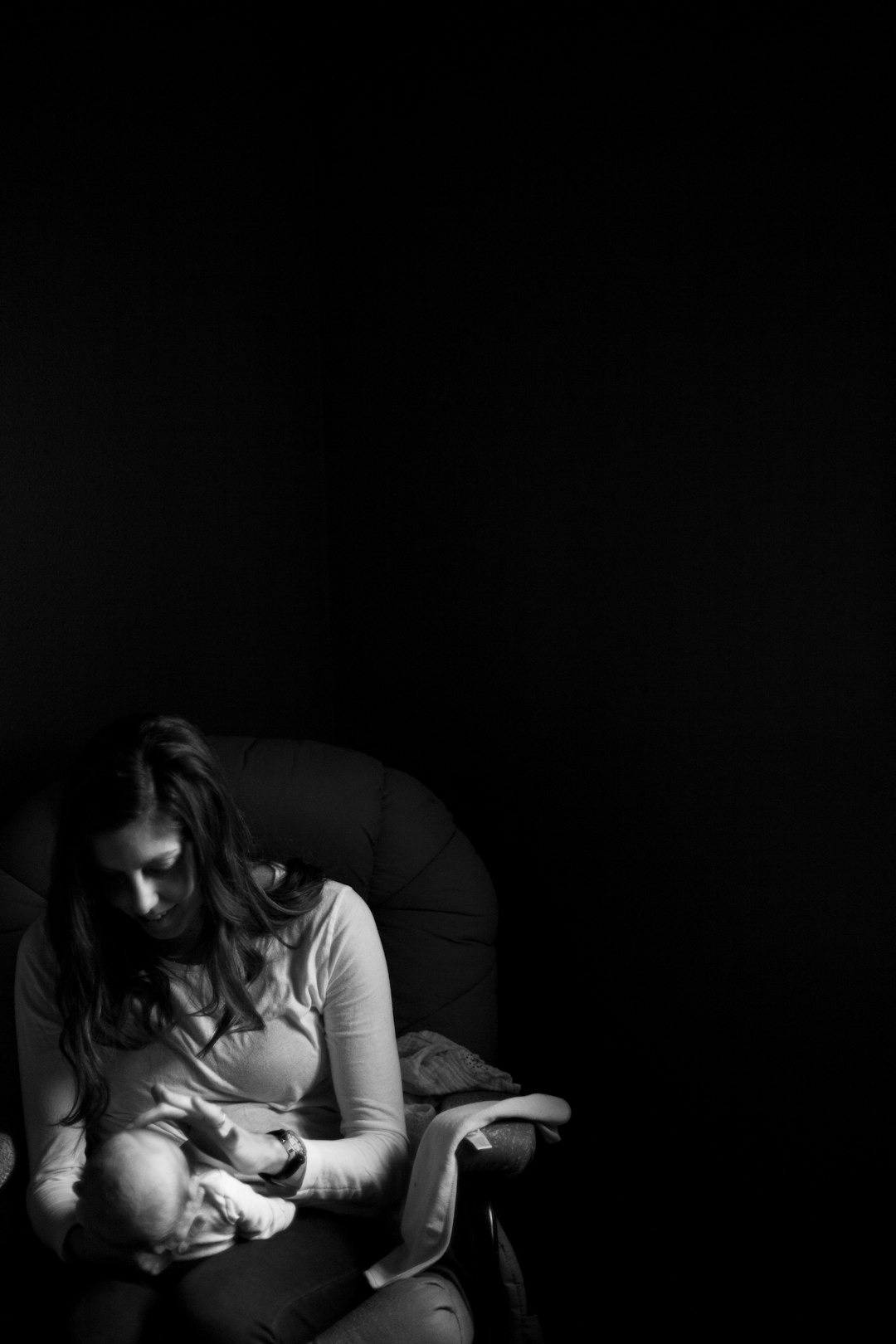In thinking about this week’s column, my brain kept returning to the image of a light in the darkness.
Now is the time of year that we in the Northern Hemisphere see the sun the least. Everything is cold and still and dark. But in such darkness, even the smallest light is clearly visible.
The darkest time in my life was when my children were small. I had wonderful, supportive family, but the double whammy of multiple diagnoses and fragile newborn twins — combined with the sudden loss of my career due to their extraordinary care needs — made for dark times. I had little in the way of formal support, despite knocking on every door. It was the midst of a recession, the parade of social workers coming to my house would say. There was no money for actual help for my kiddos or me.
So I was interested to hear that the federal Office of Special Education and Rehabilitative Services was hosting a webinar this week to “highlight how federal agencies, State agencies, local programs, and families can work together to support infants and toddlers with disabilities’ growth and development.” The hosts promised to share a “…vision for serving all infants and toddlers with delays and disabilities….”
I was 10 minutes late to the webinar. I was juggling the kids’ tube feeding and online school assignments and just couldn’t get on before then.
When I got on, the Biden administration was announcing that special education programs for infants and toddlers would get twice as much funding in their next proposed budget. If approved by Congress, $932 million would go to support early intervention programs, known as IDEA Part C grants.
(The services for tykes are part of a White House proposed budget that also calls for Congress to approve an additional $3.3 billion more than 2021 levels for services under the Individuals with Disabilities Education Act (IDEA). That’s would be a total of $16.3 billion to match what states and local districts spend on education for pre-K to grade 12 for students with disabilities.)
The webinar consisted of a lot of people announcing the good work they’ve done or the good work their “partners” had done. While I cleaned up from lunch and swept up a spill, I struggled to understand what of actual substance was being proposed to do with the dollars. Everyone was so upbeat and self-congratulatory during the hour-long presentation, one might assume that the problem of educating young disabled children was well in hand.
In fact, what I might have missed during the first 10 minutes was that the United States certainly does not have the problem well in hand. According to a 2020 study the administration cited in its subsequent press release, a scant 18.7 percent of children eligible for early intervention ever got a referral. Of those, only a quarter actually received services. That would indicate that only 5 percent of eligible children actually got early intervention, the scientists concluded.
I then took a look at the new guidance documents the administration released and combed through them for more clues about what this nearly $1 billion would do to light up the darkness. In them, I found guiding principles and marveled at how several of the recommendations tried to seat power with the families. It calls for administrators to use “family voice” to guide their actions, to use “culturally and linguistically responsive practices,” and to focus on the “individualized needs of each and every infant and toddler.” These all seemed to me like codes for one thing: Listen to the family!
I’ll editorialize a step further: Listen to young moms!
Young women — scared, uncertain or worried about what’s going on with their babies — need better support if we are ever to improve the rates of young Americans who access early intervention services. They need to hear about their options, they need to have the bandwidth to manage the appointments and they need to be truly, genuinely supported once part of that system.
And yet, I worry this message loses itself in the very complexity of the early intervention system’s design. Even from the beginning of life, the “administrative burdens” on disabled people — which the Center for American Progress so brilliantly laid out in their report earlier this month — are throttling the gains we could be making towards equity, inclusion and all people living to their full potential.
As I felt during the webinar, the people who have the time and energy to be in planning discussions — as well as the ability to code switch to the degree needed to understand what is being discussed — is itself a barrier to true collaboration with disabled people and their families.
I don’t have a magic wand to fix the system. But if I could give any advice to young moms now, it’s that there is no one coming to “save” you. Even a really well designed program can only respond to the needs you express. That means they need your engagement and energy to work. You have to say what you and your child need before anyone can provide it, so you have to find your voice and speak your truth.
And, importantly, you have to have the courage to say what isn’t working — and even walk away when promises of help prove false.
When darkness is all around, we look for the light. But sometimes the light is not somewhere out there, it’s in us. It’s in the mom who juggles her three sick kids and work obligations all winter. It’s in the dad who is exhausted but piles the kids in the car to go make memories at the children’s museum anyway. It’s in the grandma who doesn’t move so fast anymore but makes a special meal for all the special people in her life.
The light is in you. Keep it burning.
Don’t miss our 30 percent off sale on paid subscriptions! Going on now until Christmas.
You can also offer your friends gift subscriptions during this season of giving, or donate one to someone in need. (I have a list of folks who I can give the donated subscription to.)
Medical Motherhood’s news round up
Snippets of news and opinion from outlets around the world. Click the links for the full story.
• From State of Reform: “Lawmakers propose legislation that would pay Oregon parents to care for their disabled kids”
*Editor’s note: I am a member of Advocates for Disability Supports, which has advocated for this legislation.
Last week, Oregon lawmakers discussed legislative proposals that would establish a system that would pay parents to care for their children with intellectual and developmental disabilities.
Members of the Oregon Senate Interim Committee on Human Services, Mental Health, and Recovery discussed two legislative concepts during a meeting on Friday. Sen. Tim Knopp (R-Bend) introduced Legislative Concept (LC) 656 to the committee, which aims to extend financial support for parents of disabled children that was offered during the COVID-19 pandemic.
The federal government partially paid for the parents of disabled kids to take care of their kids during the pandemic. And Knopp said he was contacted by constituents requesting that he support legislation that would provide an opportunity for these benefits to continue in some way.
“The reasons they wanted this to continue were the fact that they saw significant benefit of kids being overall healthier, happier, more integrated in their communities, and staying out of institutional living situations and the hospital,” Knopp said. “They recognized that kids actually did better when parents were being paid to care for these kids.”
[…]Sen. Sara Gelser Blouin (D-Corvallis) introduced LC 1256 to the committee. She said she conducted some research to determine whether it was best for the state to establish a paid-parent caregiver program as part of Oregon’s Medicaid plan or to attempt to acquire a waiver.
[…]Due to the high cost of a Medicaid plan, LC 1256 proposes to establish a paid-parent program through the state applying for a waiver.
“And because it’s a waiver, we can identify the population,” Gelser Blouin said.
The state would be able to categorize kids into service level tiers based on age.
• From GPB News (Georgia): “Georgia legislative committee proposes path to end disability services waitlist”
A bipartisan group of [Georgia’s] legislators on Wednesday recommended the state fund 2,400 additional waiver slots in the upcoming FY2024 budget as the first installment in a three-year plan to do away with the waitlist completely. In 2022, lawmakers funded an additional 513 waiver slots for the FY2023 budget.
[…]The committee held meetings over the course of several months and listened to hours of testimony from advocates, providers and Georgians with disabilities about how the state’s hard-to-navigate system is harming lives.
Roswell resident Celeste Chippero — who moved from Michigan to Georgia six years ago — testified to lawmakers during a hearing in August that parents of disabled children and adults have been left stranded.
Through tears, she described caring for her 32-year-old son, Peter, who has cerebral palsy.
Their family has been on the Medicaid waitlist for 5 years, she said, and they wrongfully assumed when they moved that care would be easy to access in Georgia as it was in their previous home.
“I know parents who left Georgia to go someplace else so they can get care for their kids,” she said. “And quite honestly, we can't retire right now for what we have to do to provide for our kids to be in these programs.”
“The greatest fear as a parent: what happens when I'm gone?” she continued. “We need programs that support the severely disabled and that aren’t warehousing them or [having them] institutionalized. He deserves a life where he can enjoy the things that he does.”
• From The Sacramento Bee: “Four years after child’s fatal restraint, Davis schools commit to new safety training”
Davis schools reached an agreement [with] the federal government this week to update policies on restraining students, resolving an investigation triggered by the 2018 death of a 13-year-old student. Davis Joint Unified committed to providing additional training and monitoring how schools practice restraint and seclusion for students with disabilities by January 2023. The agreement with the U.S. Department of Education comes almost exactly four years after Max Benson died after an three employees at an El Dorado County nonpublic school placed him in a face-down prone restraint for nearly two hours. Max, who had autism, suffered fatal brain damage and died in November 2018.
[…]“The tragic death of a child subjected to prolonged and repeated restraint at a school placement through this district underscores the urgency for school communities everywhere to carefully examine their restraint and seclusion practices to safeguard children in their care, in addition to their obligation to satisfy the federal civil rights laws we enforce,” Assistant Secretary for Civil Rights Catherine E. Lhamon said in a statement.
Medical Motherhood brings you quality news and information each Sunday for raising disabled and neurodivergent children. Get it delivered to your inbox each week or give a gift subscription. Subscriptions are free, with optional tiers of support. Thank you to our paid subscribers!
Follow Medical Motherhood on Facebook, Twitter, TikTok, Instagram or Pinterest. The podcast is also available in your feeds on Spotify and Apple Podcasts. Visit the Medical Motherhood merchandise store.
Do you have a story to share or an injustice that needs investigation? Tell me about it and it may become a future issue.














